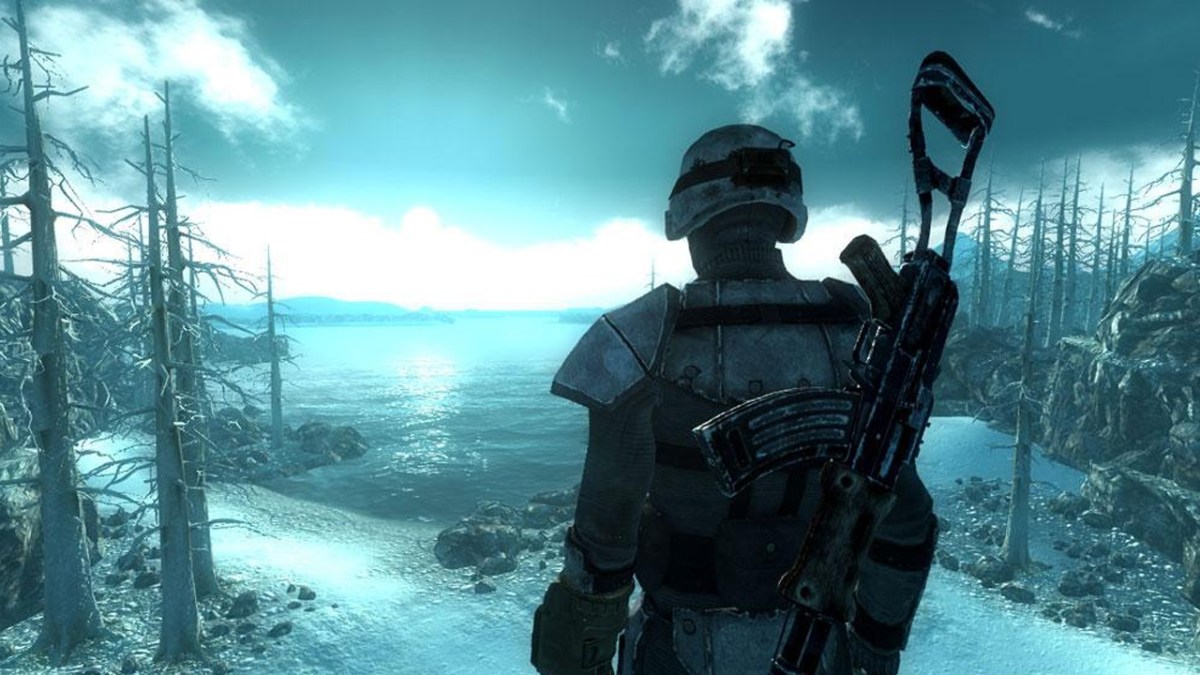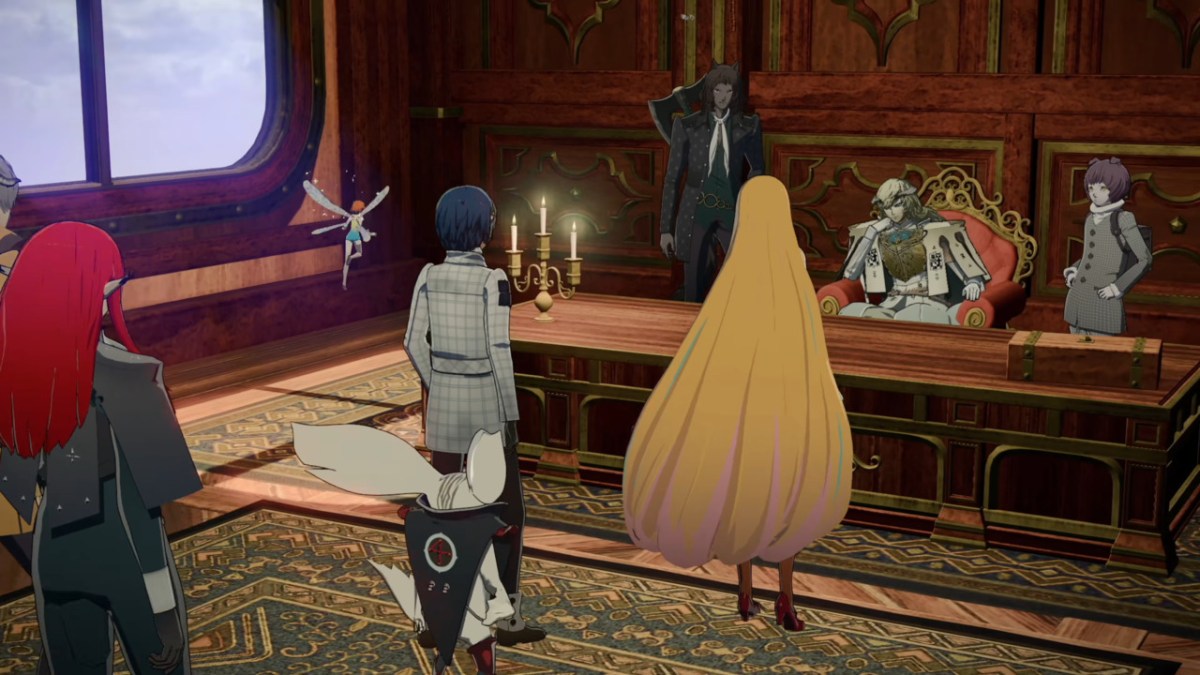Editor’s Note: Last week, I wrote a piece discussing whether video games are better now than they used to be. Part of that discussion looked at whether the industry has already come to understand the potential of the video game medium as an art form.
While I didn’t discuss it at the time, there are a great number of assumptions in stating that video games are an art form. Indeed, the debate about whether video games can be art has a long history, and the issue can hardly be said to be resolved. Unfortunately, answering the question of whether video games can be art is no simple task. It’s mired in definitions, distinctions, history, and ultimately–subjectivity.
But in my view it remains an important discussion.To that end, this will be the first in a series of articles that looks to explore the history of the debate and consider many of the points made by individuals on both sides of the issue.
At the outset, it’s important to note that this about whether games can be art, not whether all video games are art as a general rule. Asking whether all video games are art as a rule would ultimately make the question meaningless, and the debate unfruitful.
Back in 2010, there was a quite a rankling among the gaming community when Roger Ebert stated that not only were video games not currently art, “no video gamer now living will survive long enough to experience the medium as an art form.” There were many that agreed, but the bevy of condemnation from gamers that followed resulted in Ebert effectively retracting his statements on the basis he knew too little about video games.
I don’t raise Ebert’s views to disturb the dead, nor cast aspersions, but simply to demonstrate that there still remains an enduring, if not prevailing, view that games cannot be art more than three decades since the first rise of popularity. Indeed, it’s become an issue so long debated that it’s quite likely taboo in polite company, right alongside politics and religion.
But the controversy and the unpleasantness of the topic is provides no reason to avoid meaningful discussion any more than we should avoid discussing politics or religion. Of course, most would agree that politics and religion are important topics. Video games are another matter. So why, particularly, does it matter that we discuss whether video games can be art?
In fact, Roger Ebert put the point succinctly in his 2010 post on the subject:
Why are gamers so intensely concerned, anyway, that games be defined as art? Bobby Fischer, Michael Jordan and Dick Butkus never said they thought their games were an art form. Nor did Shi Hua Chen, winner of the $500,000 World Series of Mah Jong in 2009. Why aren’t gamers content to play their games and simply enjoy themselves? – Roger Ebert
It’s a good question, and one that deserves good answers.
The first and most obvious response is to question why anything needs to be defined in a specific genre. Why does it matter whether Shakespeare or Mozart are defined as artists, rather than simply good writers or composers? Why aren’t readers content to read Hamlet and simply enjoy themselves?
Of course, readers can interpret Hamlet and simply enjoy themselves, but its definition as art does serve a number of purposes.
Firstly, defining a work as “art” makes special note of that piece. It draws attention, highlighting it as something that goes beyond the everyday, beyond the mediocre, and that it’s worthy of attention. It says that it may be of interest to people who enjoy art for art’s sake, even if those people aren’t otherwise familiar with the medium. It says that there’s something here worth experiencing, and worth thinking about.
In other words, calling a video game art may help in exposing video games to a wider audience that may be searching for art but does not know that it exists in the video game realm. It also helps video games appeal to mainstream audiences that may see them as little more than interactive toys for children. By identifying them as at least being capable or artistic merit, it removes much of the social stigma that currently inhibits the growth of gaming.
Secondly, calling something art opens up potential avenues of scholarship. Roger Ebert isn’t alone in believing that video games aren’t art. There was considerable controversy when the Museum of Modern Art in New York City acquired a collection of video games. And while numerous schools are offering video game courses, by-and-large the view among traditional academics in the humanities is that video games aren’t worthy of serious study. While this view is changing, it currently hamstrings young scholars from pursuing what otherwise might be a fruitful investigation, and prevents the study and preservation of the best and most beautiful works in the medium.
There’s a great deal being said, intentionally or not, in even purely procedural or simulation games (an issue we’ll touch on more). Unfortunately, critical analysis of these games isn’t being done on a wide scale in academia.
Thirdly, it forms a justification for a form of entertainment. In other words, if video games are art, playing video games allows for the same personal development and cultural growth as reading Hamlet or examining a Picasso. If games are art, then playing them is not merely wasted time that could be better spent reading or exercising or learning a new skill. I find this to be the weakest argument, as it attempts to rationalize enjoying entertainment, which never needs to be rationalized. No one should have to defend their pursuit of personal happiness. However, this argument likely forms at least the subconscious impetus for much of the more emotional reactions to the debate from within the gaming community.
Finally, there are practical legal reasons why viewing gaming as art may be important. Video gaming has been under constant assault in the political realm from people who feel that its content should be censored or its sale restricted. Whether it be sexual depictions in Grand Theft Auto: Sand Andreas or the graphic violence of Carmageddon, or even true simulations of war fatalities, various groups have felt that video games have overstepped acceptable boundaries of content and have sought to prevent the public from exposure to it.
In the United States, these attempts to restrict gaming content resulted in a Supreme Court ruling holding that games are an expressive medium entitled to the same free speech protections as books, movies, and other art forms. While the Supreme Court did not hold that games are art per se, it did find that games communicate ideas at least in a manner similar to other established forms. This is enough to put the matter to rest in the US for the foreseeable future, but it’s likely that these issues will be examined again in other countries.
Australia is already infamous for banning games with adult content. If video games are clearly established as an artistic medium in both cultural parlance and the academy, it will be difficult for both existing censors or activist groups to make the case that video games aren’t entitled to the same freedom of speech protections that may exist for media like books and movies in those countries. Most instances have been handled on a case-by-case basis, leaving them to be scrutinized in the future. The presumption of art may ensure an uncensored future for games.
What do you mean I’m not on the Guest List?
Not everyone agrees, of course, that this debate is meaningful. Game designer and academic Eric Zimmerman has argued that we simply shouldn’t care, because art is nothing more than a label applied to culturally dead media with little disruptive power. He notes that art can be anything (so who cares?), and in any case, video games shouldn’t bother with trying to art, because video games are more culturally important than most media celebrated as art within traditional academic circles.
While I agree that games certainly don’t need to be justified through membership in the ‘art club’ to be culturally relevant, I do believe that membership has its privileges. These include not needing to be constantly defended from detractors who are actively using political and legal means to bury the medium. Membership also removes barriers to preservation, something that’s still subject to legal debate where it concerns video games. Museums shouldn’t need to justify the inclusion of video games in their collections, nor should archivists be forced to defend their choices for preservation. The debate isn’t purely semantics.
I also disagree with Mr. Zimmerman’s statement that “Art is the name for establishment culture – works that have ceased to challenge and offend.” There is no shortage of books, movies, and even music that continues to challenge and offend, despite longstanding designation as art. Video games will not lose their cultural currency by being enshrined in the wings of the academy. There’s nothing to be lost by calling a video game art, and potentially much to be gained.
So while the debate may be tired for some, it’s hardly settled, and it’s certainly still relevant.
After all, video games are no longer in their infancy. We can no longer look at them with a mind only to the future. They’ve grown up, and we have to decide whether they’re worthy for preservation, worthy for display, and worthy of protection.
To answer these questions, we have to decide whether they can be art.








